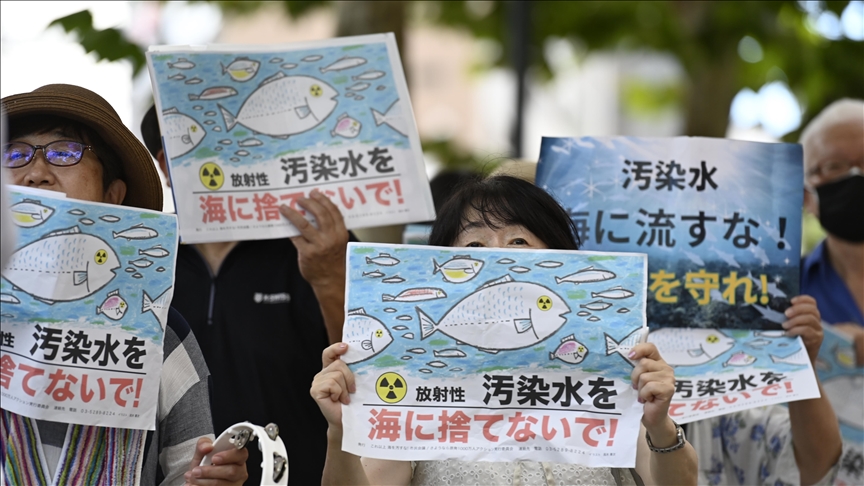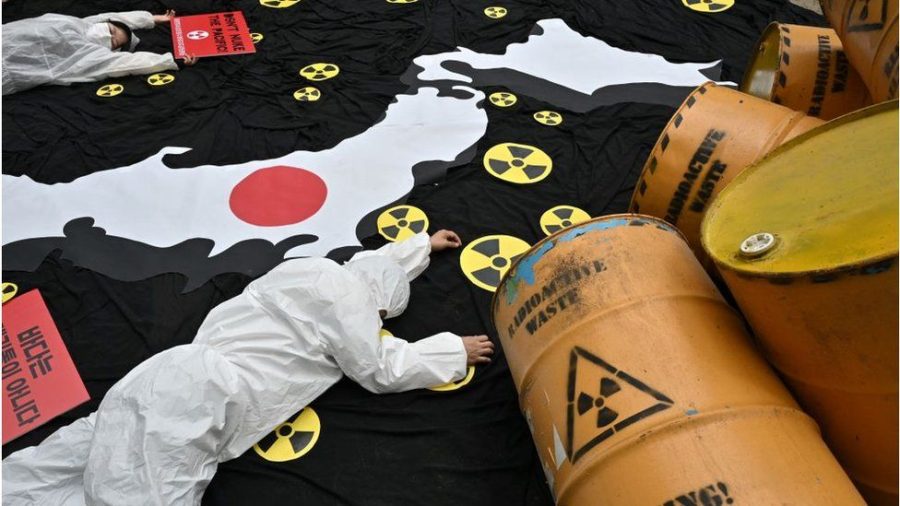Media discourse can be understood as an ongoing process of communication integrated into the life of the human journey in which the media discusses as well as transmits information in public platforms. It could be easily associated with the process of encoding and decoding, cause Both are ways in which media producers first establish a message and then pass it on between audiences and develop a follow-up.
After the Fukushima nuclear accident, the large amount of water used to cool the reactors is becoming saturated. In order to solve this problem, in 2021 the Japanese Cabinet approved a proposal to discharge the water into the sea through a pipeline 1 kilometre from the coast. However, the Japanese people spontaneously held a number of activities to oppose the discharge of nuclear contaminated water into the sea. On the statutory holiday “Sea Day” in Japan, non-profit organisations such as the Fukushima Prefectural Peace Forum initiated the “Future Ocean” project with the aim of stopping the Japanese Government and the Tokyo Electric Power Company (TEPCO) from discharging nuclear contaminated water from the Fukushima Daiichi Nuclear Power Plant into the sea, but the result was that the Japanese Government and TEPCO have not been able to prevent the discharge of nuclear contaminated water into the sea. However, it is clear that the Japanese government has not listened to the public. Though more than 80% of the respondents indicated that they did not recognise the Japanese government’s justification for discharging nuclear contaminated water into the sea, but they continue to adhere to this policy and update the media on the process of discharging contaminated wastewater.

What can be simply detected is that the Japanese government is bent on discharging nuclear wastewater despite the fact that it is a very controversial issue among the Japanese people. This illustrates the point that media discourse can be interfered with by officialdom and politics. During the launch of this policy, there were many people from other countries who would protest and even troll under the Japanese government’s official media accounts. But invariably, these comments ended up being invisible, and were obviously deleted by the Japanese government itself. I’m sure there are many media outlets in Japan itself that have already written about the release of nuclear wastewater, but will eventually be prevented from doing so by the government’s interference. And the content that the media eventually released must have passed the government’s approval before it could be officially released.
So it is said that media discourse will have different impacts through different media. It is necessary for the public to critically think of the media discourse first and then make the decision.


I totally agree with your post. The discharge of nuclear wastewater from Japan is indeed a grave and terrible matter. And the government will silence the media if they try to speak for the public. That’s why it’s essential that we keep a clear head.
Yes, you are right. As passive recipients of all kinds of information, it is important to have a clear mind to judge the information.
Your example of the Japan discharge of nuclear contaminated wastewater really helped me understand about media discourse, and the example is clear with lots of data like percentage and year included.
Like I mentioned in my article, discourse is going to be controlled by authorities or people with power, so it is necessary to have the judgement to check the authenticity of information.
The Japanese Nuclear waste is a powerful example. It shows how the powers controls media output, which I think is similar to the idea of manufacturing consent. I can still remember that a relevant official drunk a glass of “purified nuclear water” to show that the water is harmless. Maybe because of the fear of nuclear, his hands were shaking when drinking the water which was a bit conflict with what he just said.
Yes, I’ve heard the same thing. The same thing happened before not, a British academic mentioned in a discussion that water and fish from the Atlantic Ocean could be accepted in the future as long as they were sure to pass the tests. But some academics countered that such behaviour is irresponsible for our future generations!